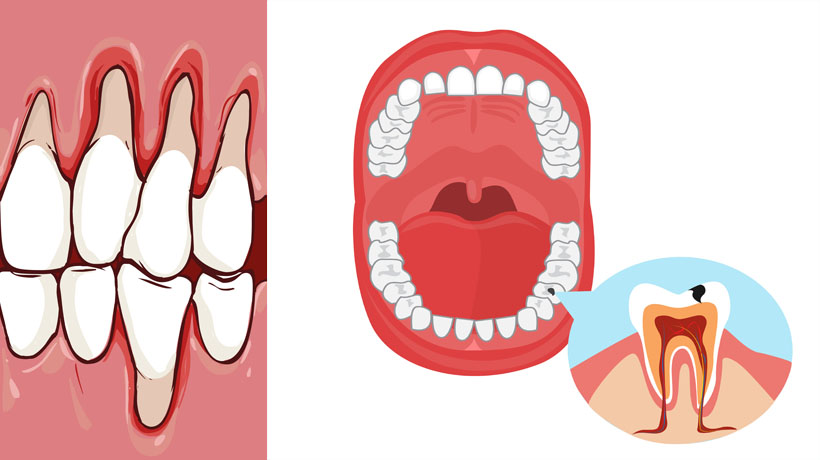Diabetes refers to a group of different diseases that affect how your body uses blood sugar, or “glucose.” Glucose is vital to your health: It’s an important energy source for the brain and for the cells in the muscles and tissues.
Chronic forms include type 1 diabetes (when the body doesn’t make enough insulin) and type 2 diabetes (when the body stops responding to insulin), whereas potentially reversible conditions include prediabetes (when your blood sugar levels are slightly higher than normal) and gestational diabetes (which occurs during pregnancy but may resolve after the baby is delivered).
The underlying causes of diabetes vary by each type, but all forms of the disease can lead to excess sugar in your bloodstream, which can lead to serious health problems—some of which you might not expect.
Diabetes symptoms vary depending on how much your blood sugar levels are elevated. The condition can affect your entire body, including health complications that show up in your mouth.
Red, swollen, tender gums
Diabetes may weaken your ability to fight germs, which increases the risk of infection in your gums and in the bones that hold teeth in place. People with diabetes might find that their gums pull away from their teeth, or that they have developed sores or pockets of pus in the gums.
Dry mouth
One of the most common symptoms of diabetes is dry mouth, or xerostomia. Dry mouth occurs when the amount of saliva in your mouth is reduced, which is a symptom of diabetes. Dry mouth is a common symptom in both type 1 and type 2 diabetes.
Gum disease
An unmanaged dry mouth can lead to the following complications over time: gingivitis, or irritated gums due to bacteria, periodontitis, or inflammation around the tissues surrounding the teeth, thrush, or the growth of fungus in the mouth and persistent bad breath.
Cavities
The higher your blood sugar level, the greater the amounts of sugars and starches present in the mouth. These substances wear away at your teeth, and because people with diabetes have less saliva to naturally clean the teeth, they are at a higher risk of developing cavities.
Change in taste
Diabetes can alter your mouth and change your ability to perceive the richness of some of your favorite foods. If you have a constant bad taste in your mouth, see your dentist or doctor—it can be a sign of a larger problem.
Slowed healing in the mouth
Cold sores or cuts in the mouth that just won’t heal can signal that something is wrong with the body. Poor control of blood sugar can keep injuries from healing quickly and properly.
Oral burning
People with diabetes may feel a burning sensation inside the mouth, caused by high glucose levels in the blood. Symptoms may also include dry mouth and bitter taste and tend to worsen throughout the day. Once blood glucose is under control, the oral burning should go away.
Tooth loss
One in five cases of total tooth loss is linked to diabetes. This may be tied to the gum disease that can result from diabetes.
Sources:
https://www.mayoclinic.org/diseases-conditions/diabetes/symptoms-causes/syc-20371444
https://www.mayoclinic.org/diseases-conditions/diabetes/in-depth/diabetes-symptoms/art-20044248
https://www.healthline.com/health/diabetes/dry-mouth-diabetes
https://www.mouthhealthy.org/en/diabetes-slideshow
http://www.diabetes.org/living-with-diabetes/treatment-and-care/oral-health-and-hygiene/warning-signs.html
https://www.niddk.nih.gov/health-information/diabetes/overview/preventing-problems/gum-disease-dental-problems



